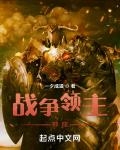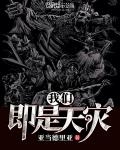Chapter 203 Rest - Rome
Jiang Wei and others who were far away in the Western Regions did not know that their titles were on the way, and they were still messing around in the Western Regions.
Li Jue and his men could not contain their warlike spirit after all, so they selected 3,000 of their own troops, 3,000 cavalrymen, and 4,000 Wusun auxiliary cavalrymen and set off towards the west. The local natives of Wusun led the way, taking Li Jue and his men all the way.
Their target was Parthia. The Wusun people were still very afraid of the Parthian Empire. In fact, there was no kingdom that was not afraid of the empire.
In fact, to put it another inappropriate way, the empire is a collection of kingdoms. This statement is very inappropriate, but it also indirectly illustrates the foundation of the empire.
As one of the first-sequence empires, the Parthian Empire was not actually very strong, but it had no problem defeating several kingdoms.
The Parthian Empire was very weak, but it was never weak. It was just that its thinking had become rigid in recent years, internal conflicts had increased, and it had been driven to its capital by Rome several times.
The Parthian Empire was a country composed of different cultures. It absorbed to a large extent the essence of Persian culture, Greek culture and other nomadic cultures to form a classical slave empire.
At its peak, the Parthian Empire's territory reached as far west as the Euphrates River in southeastern Asia Minor and as far east as the Amu Darya River. Located on the Silk Road, it could be considered a commercial center of Eurasia. Unfortunately, they took too many unconventional paths and eventually ran into a pit. They encountered the Kushans and the Romans.
The Parthians and the Kushans managed to maintain a reluctant friendship. After all, the Kushans did not want to fight with Rome. As people of the Yuezhi clan, they knew too well what an empire was.
They never wanted to see the tragic scene of the Han Empire and the Xiongnu Empire turning the grasslands red again in their lifetime.
Even if the Kushans and Parthia barely reached an alliance, the Kushans would even give Parthia some support and help it fight against Rome.
During the peak period of the Parthian Empire, it even fought against Rome, especially in the Battle of Carrhae, where Crassus, one of the three Roman giants, led his large army to be defeated by the Parthian Empire and even lost his life.
In a battle, the Parthians stole the eagle flags of seven Roman eagle legions. Although they were returned in the end for various reasons, it was enough to prove the strength of the Parthians.
Seven great nobles, small and medium chiefs, desert city-states. It can be said that the so-called Parthian Empire was just a part of the Parthian Empire.
Rome attacked the imperial capital of Ctesiphon several times, but the unlucky ones were only the Parthian royal family, or to be more precise, the royal nobles among the eight great noble families of Parthia.
But even so, he is still an empire, and is still unattainable to opponents at the kingdom level.
If we make an analogy, the national strength of the Parthian Empire is 1, then the seven great nobles combined is from 2 to 3, the entire Parthian Empire combined is about 4, and the national strength of its neighbor, the Kushan Empire, the north and the south combined is 4 to 5.
The national strength of a top kingdom is only 0.5 at most, and the gap between the two sides is so great that it is immeasurable.
Wusun had challenged the Parthian Empire, and the result was naturally self-evident. The attempt of tens of thousands of troops was defeated by a wave of Parthian troops. Wusun gave up the idea of developing westward and concentrated on the Thirty-Six Kingdoms in the Western Regions.
However, Wusun still paid close attention to the movements of empires such as Parthia and Kushan. After all, the weak always have to care about the actions of the strong, only in this way can they live better.
The Wusun knew that the battlefield between Parthia and Rome was extremely intense. They often received news that a Roman army of 100,000 invaded Parthia Ctesiphon and was then driven away.
In such frequent battles, no matter how weak and stupid the Parthian army was, it still had the necessary strength.
After all, any strong army is forged on the battlefield. After surviving a few times on a battlefield full of blood and flesh, at worst they can be elite soldiers with a single talent. After all, the soldiers who did not make progress would have died long ago.
If Parthia did not have such a group of soldiers, it would have been destroyed by Rome long ago. How could it have remained deadlocked on Parthia's territory?
Moreover, after the Parthians introduced the Huns, a vicious ally, the Roman army had been driven out of Ctesiphon, and the civilians of the Parthians also saw in Vologases V the glory of rebuilding the Padian Empire.
A large number of civilians joined the army of Vologases V, and the Roman army sent to fight the Parthians was defeated for a while.
Although Rome sent only barbarian legions, there were only two Eagle Flag Legions in total, and the rest were all legions composed of Roman barbarians.
To be honest, it was not that Rome was unable to defeat Parthia, but Parthia was an opponent that Rome was confident of defeating, and Rome was just depleting the number of Roman barbarians.
The reason is simple. As we all know, there were two classes in the Roman Empire: citizens and barbarians and slaves.
Even the Roman consuls, more commonly known as emperors, were called the first citizens .
This alone is enough to explain what the identity of a citizen represented in the Roman Empire era: a true aristocrat.
As a loyal citizen of Rome, the conscientious consul Pompeianus discovered Rome's Achilles' heel, which was the number of Roman barbarians and the number of Roman citizens in the Holy Roman Empire.
Although we are all members of the empire, the meaning is self-evident.
The policy of Rome was that as long as they had military merit, barbarians and slaves could become Roman citizens. As Rome was an empire at war on three fronts, the number of barbarians and slaves was simply incredible.
As one of the most flawed empires in Eurasia, the Holy Roman Empire had a population of nearly one billion, and the ratio of the number of Roman barbarians to Roman citizens was already shocking. Coupled with the fact that Holy Christianity was causing trouble in the empire, the Holy Roman Empire was already running at a loss.
As the treasurer, he could only find ways to increase the consumption of the Roman barbarians, and Parthia was a good choice.
It would neither let the situation go beyond expectations nor exhaust the barbarians, and since they still had a great feud with Rome, it would not make the Roman barbarians doubt the empire's motives.
It can be said that Rome cannot stop at all. Once the barbarians see no hope of rising, they are likely to rise up. At that time, no matter how strong Rome is, it will die.
It can be said that Rome is a chariot that has lost control and is heading for the road of war, never to return. Once the road of war reaches its limit, Rome is doomed.
Think about it, what Caracalla did. Since there is no way to wage war, wouldn’t it be better for me to just give everyone citizenship?
Then Caracalla died a complete death. One order offended the entire empire . If he didn't die, who would?
Even slaves and barbarians would not thank Caracalla. After all, they worked hard in the past because they yearned for the privileges of citizens. Now that the privileges are gone, what is the point of becoming a citizen? I still can't see any opportunities for advancement.
And then Caracalla died at the hands of his own guards, well, that's very imperial.






